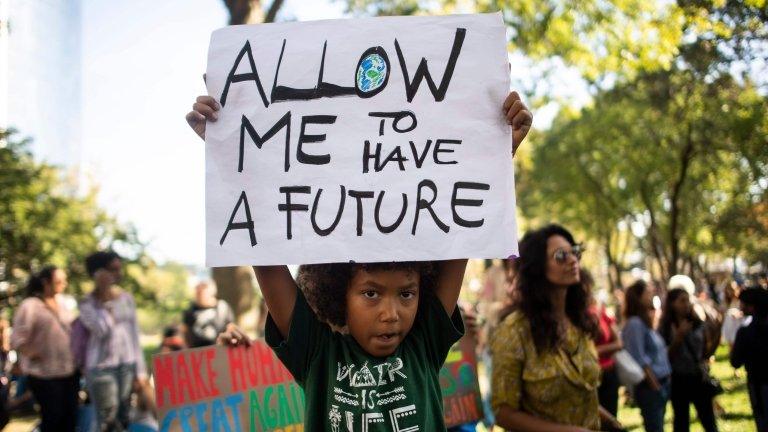Pizol glacier: Swiss hold funeral for ice lost to global warming
- Published
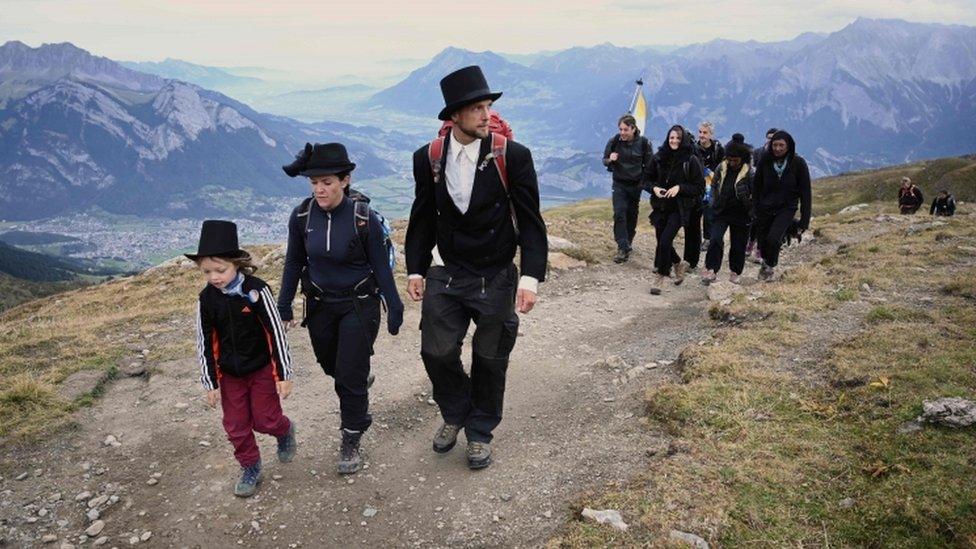
Locals, hikers and environmental campaigners attended the "funeral march" for the Pizol glacier
A Swiss glacier lost to global warming has been commemorated at a memorial service in the Alps.
Dozens of people took part in Sunday's "funeral march" to mark the disappearance of the Pizol glacier.
The glacier, in the Glarus Alps of northeastern Switzerland, has shrunk to a tiny fraction of its original size.
Scientists say the glacier has lost at least 80% of its volume just since 2006, a trend accelerated by rising global temperatures.
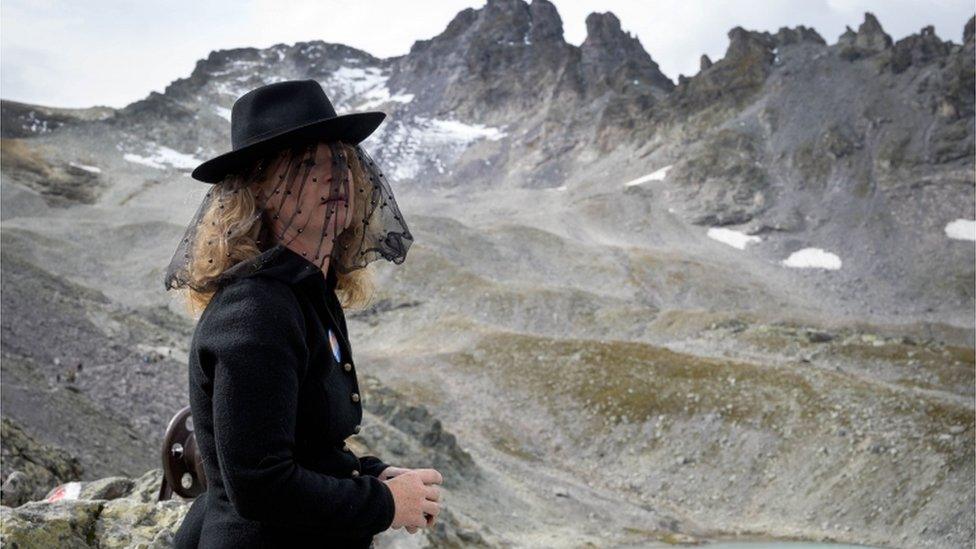
A woman takes part in a ceremony to mark the "death" of the Pizol glacier
As mourners gathered in the Swiss Alps, youth activists and world leaders are in New York to discuss climate change action at the UN.
Saturday's UN youth summit came a day after millions of people around the world held a global climate strike, inspired by 16-year-old activist Greta Thunberg.
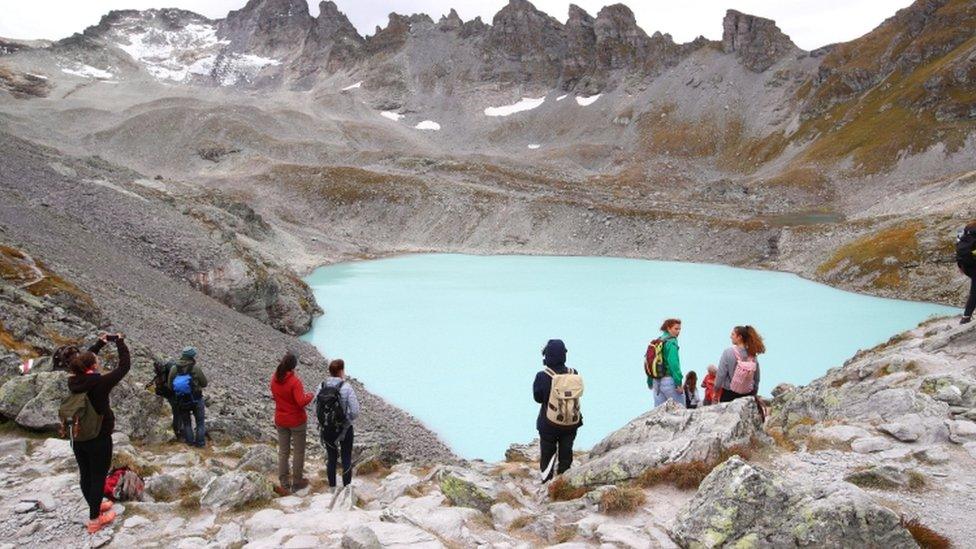
People look at the Pizol glacier as they take part in a mourning ceremony
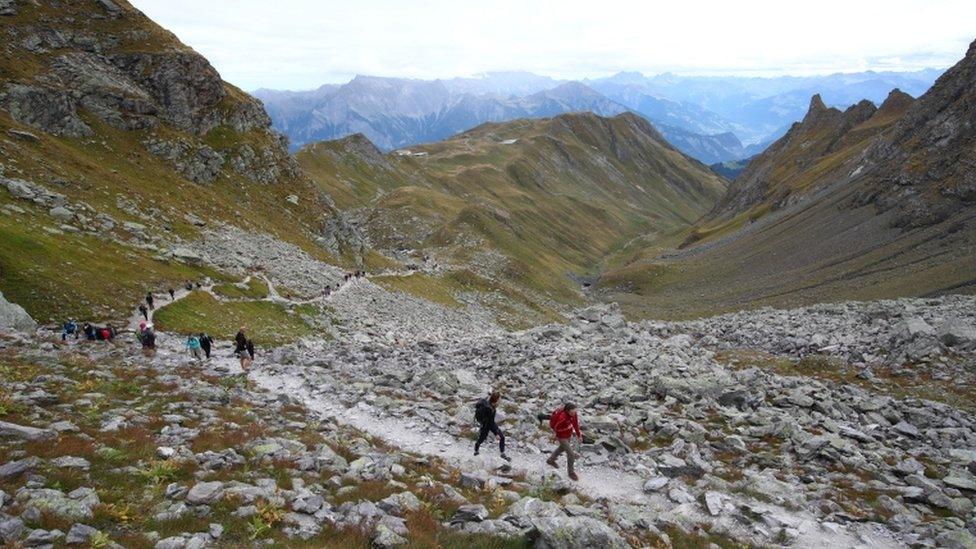
The glacier is situated at an altitude of around 2,700m (8,850ft) in the Swiss Alps
Yet despite what action humans take now, a study by Swiss researchers suggests that, by 2050, at least half of Switzerland's glaciers could vanish, external.
The Pizol has diminished to such an extent, "from a scientific perspective it is no longer a glacier", Alessandra Degiacomi, a Swiss climate campaigner, told AFP news agency.
Now reduced to just a few frozen lumps, the glacier was to be declared dead at the ceremony, the BBC's Geneva correspondent, Imogen Foulkes, said.
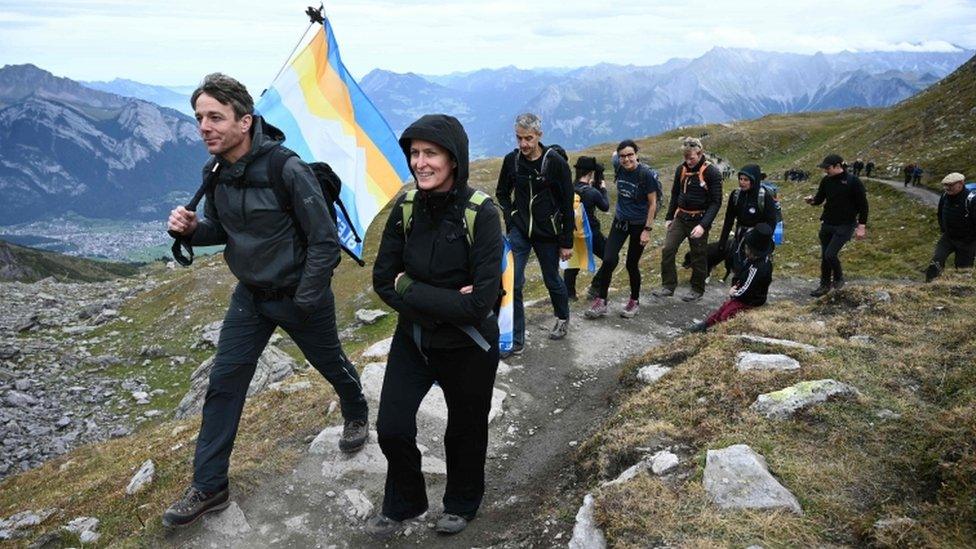
A study suggests more than 90% of Alpine glaciers will disappear by 2100 if greenhouse gas emissions are left unchecked
Locals, hikers and environmental campaigners, some dressed in black clothes, trekked up the mountain to pay their respects to the glacier's remnants, situated at an altitude of around 2,700m (8,850ft), near the Liechtenstein and Austrian borders.
At the ceremony, sombre speeches were to be delivered by a chaplain and scientists and a wreath was to be laid in remembrance of the glacier.
The event was organised by the Swiss Association for Climate Protection (SACP), an initiative calling for carbon dioxide emissions in Switzerland to be reduced to zero by 2050.
A similar ceremony was held in Iceland last month to commemorate Okjokull, a 700-year-old glacier declared dead in 2014.
.
- Published20 September 2019
- Published18 August 2019
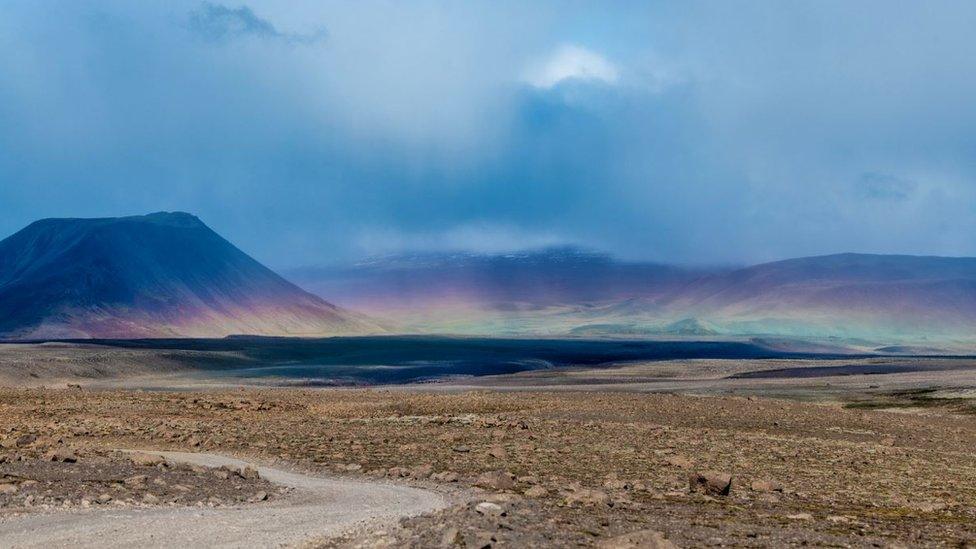
- Published20 September 2019
